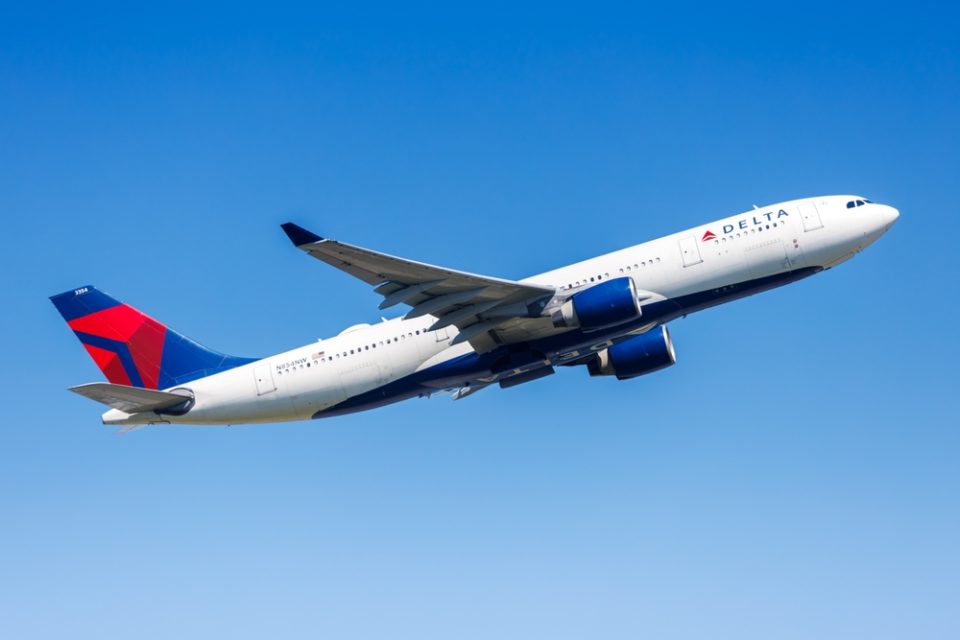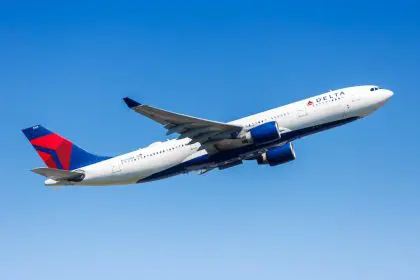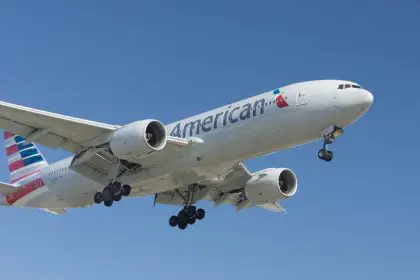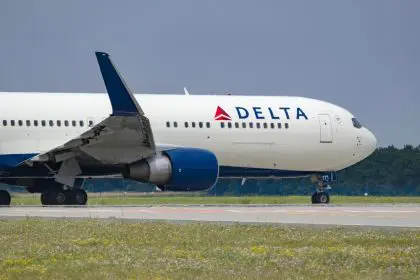
Markus Mainka
On Sept. 15, a distressing incident occurred aboard Delta Air Lines Flight 1203 shortly after takeoff from Salt Lake City International Airport. The Boeing 737-900, which was en route to Portland International Airport in Oregon, had to make an emergency landing due to a critical cabin pressurization failure. This incident left numerous passengers suffering from bleeding noses and ears, raising serious concerns about air travel safety.
The Incident Unfolds
Just minutes into the flight, as the aircraft ascended past 10K feet, passengers began to experience severe discomfort. Jaci Purser, one of the affected travelers, recounted her harrowing experience to CNN, stating, “I heard some air come out and then it started bubbling. It sounded like my ear was bubbling, my right ear, and I touched my ear, and there was blood coming out.” This alarming situation was not isolated; many passengers reported similar symptoms, with Purser noting, “Our ears just started hurting really, really bad. Everybody around us was grabbing their ears. People’s ears started bleeding. People’s noses started bleeding.”
Delta Air Lines’ Swift Response
Recognizing the severity of the situation, the flight crew acted quickly to return to Salt Lake City. The aircraft landed safely at approximately 8:30 a.m., where emergency responders from the Salt Lake City Fire Department were on standby. Upon landing, at least ten passengers required immediate medical attention due to symptoms ranging from nosebleeds to ear pain. Fortunately, despite the alarming nature of the incident, no serious injuries were reported, and none of the passengers required hospitalization.
Official Statements and Investigations
In light of the incident, a spokesperson for Delta Air Lines issued a statement expressing their regret: “We sincerely apologize to our customers for their experience on flight 1203 on September 15. The flight crew followed procedures to return to SLC, where our teams on the ground supported our customers with their immediate needs.”
Furthermore, the Federal Aviation Administration (FAA) has initiated an investigation into the incident, specifically focusing on the reported cabin pressurization issue. Cabin pressurization is vital for maintaining a breathable atmosphere during flights and preventing rapid changes in air pressure, which can lead to physical distress for passengers.
Understanding Cabin Pressurization
Cabin pressurization is a critical aspect of air travel that ensures passenger comfort and safety. As an aircraft ascends, the external air pressure decreases significantly, which can cause discomfort and health issues if not properly managed. Airlines utilize pressurization systems to maintain a stable environment within the cabin, allowing passengers to breathe comfortably and preventing the adverse effects of altitude.
When pressurization systems fail, passengers may experience a range of symptoms, including ear pain, headaches, and in severe cases, bleeding from the ears and nose. This incident serves as a stark reminder of the importance of rigorous safety protocols and maintenance checks to prevent such occurrences in the future.
The emergency landing of Delta Air Lines Flight 1203 underscores the critical nature of cabin pressurization in ensuring passenger safety. While the swift response of the flight crew and emergency services mitigated the situation, it raises important questions about airline safety standards and the measures in place to protect passengers.
Delta Air Lines Mechanical Issues
Delta Air Lines, founded in 1925, has grown into one of the world’s largest and most respected airlines. Originally a crop-dusting operation, it expanded into passenger services in 1929. Delta is known for its emphasis on customer service and safety. However, like all major airlines, it has faced mechanical issues over the years, especially with its aging fleet.
In recent years, Delta has experienced several high-profile mechanical incidents, including engine failures, system malfunctions, and delays due to aircraft maintenance. In July 2022, a Delta flight from Atlanta to Los Angeles had to return shortly after takeoff due to engine failure, causing significant concern among passengers. Similarly, there have been multiple cases where Delta aircraft experienced unscheduled landings due to mechanical problems, such as hydraulic system failures or issues with the landing gear.
While these incidents are alarming, they are not uncommon in the airline industry, where complex machinery is under constant pressure. Delta has responded by investing billions in modernizing its fleet and enhancing its maintenance protocols to prevent future issues. They are also working on improving communication and transparency with passengers when disruptions occur, maintaining their commitment to safety and customer satisfaction.










